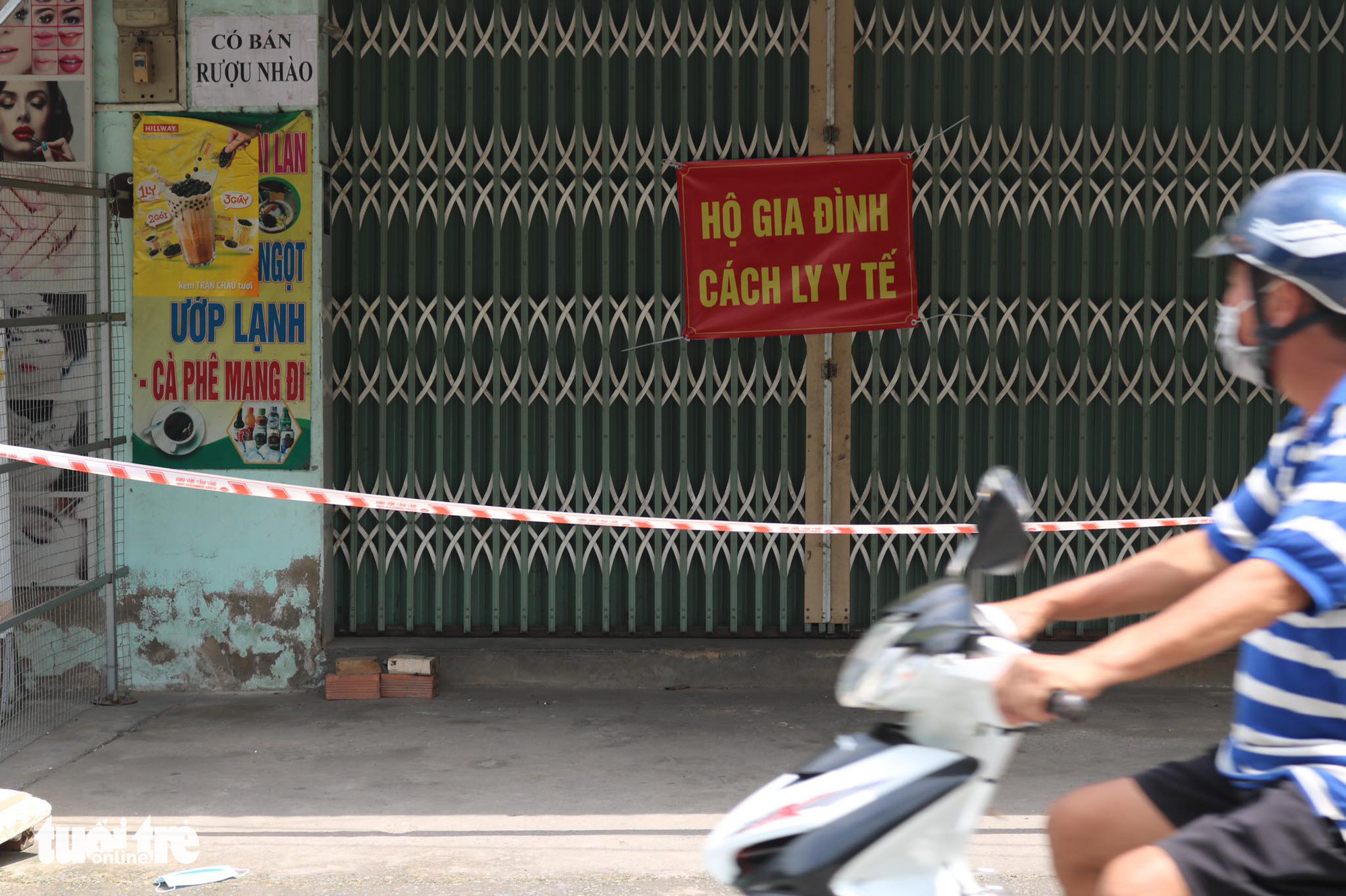The Ho Chi Minh City administration on Thursday issued guidance on a pilot program on quarantining direct contacts of COVID-19 patients at home.
The pandemic situation in the city is currently very serious, given the presence of the highly transmissible coronavirus variant Delta, the municipal People’s Committee stated, adding that the number of patients and their direct contacts has been increasing rapidly.
In order to prevent overcrowding and cross-infections at concentrated quarantine centers, the administration directed authorities in all districts and Thu Duc City to begin quarantine direct contacts of COVID-19 patients at home on a trial basis.
Accordingly, the home quarantine period will last 28 days, and each quarantined person will be tested for COVID-19 on the first, seventh, 14th, 21st, and 28th days.
Only those who wore face masks when in direct contact with COVID-19 patients and have negative rapid antigen tests are eligible for home quarantine.
They must also fit into one of the following categories, namely individuals coming into direct contact with patients on an irregular basis, people working in the same room with a patient but more than two meters away from them, people over 60, children, or the disabled individuals who require regular care.
Direct contacts who have spent 14 days in centralized facilities and tested negative for COVID-19 on their 14th day may also be allowed to quarantine at home.
The quarantine subjects’ accommodations, which must be separate houses, villas, or townhouses, have to meet multiple requirements promulgated by the Ministry of Health.
A warning sign on a red background with 'Medical Isolation Location' written in yellow must be placed in front of these accommodations.
The quarantined person must stay in a single isolation room separated from the family’s common living area and does not use the same air-conditioning system as the rest of the house.
The room must have a bathroom and sufficient personal items, soap, clean water, a thermometer, garbage bins, a washing machine or tools for the quarantined person to wash their own clothes.
A table must be placed in front of the room so that food and water can be provided without direct contact.
Local health authorities must manage and supervise the implementation of home quarantine as well as the collection and transportation of medical waste after treatment.
Vietnam had documented 25,419 cases of COVID-19 as of Friday afternoon, with 8,950 recoveries and 105 deaths, according to the health ministry.
The country has recorded 21,943 local infections in 57 provinces and cities since the fourth wave began on April 27.
Ho Chi Minh City is the country’s hardest-hit locality with 9,895 cases.
Like us on Facebook or follow us on Twitter to get the latest news about Vietnam!






















































